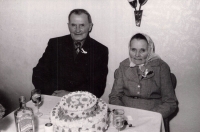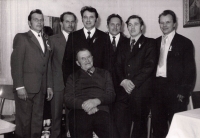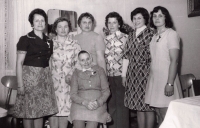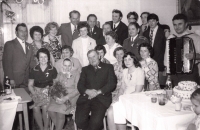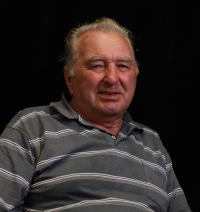We lived really well, we did not need anything else

Download image
Karel Mráz was born on the 13th of December in 1940 in Žárovná in the Prachatice region. When he was five, his parents, along with several other families from the small community of Žárovná had the opportunity to get houses which had belonged to the former [German-speaking] inhabitants who were to be expelled, and they moved to Horní Planá in the Český Krumlov area. Until around the end of 1946, they share the house with its owners and the German family grandma helped Karel’s mother with childcare. At the end of 1946, the former owners had to leave the town, some of the expelled families were taken by a horse cart to Zvonková to a border crossing with Austria by Karel and his father. Karel Mráz was born as the eighth of twelve children. In the middle of the 1950‘s, he apprenticed with the Vojenské lesy [Army Forests]. At first, he got a job removing timber during the construction of the Lipno dam, later, he worked at a… as a handler and later as a lorry driver. Between 1965 and 1990, he lived in Volary where he got a job in a timber processing company and he was assigned a company flat as well. In 1990, he and his family moved back to his parents’ house in Horní Planá where he worked in an agricultural cooperative and for the State Forests. In 2021, Karel Mráz lived in Horní Planá.
